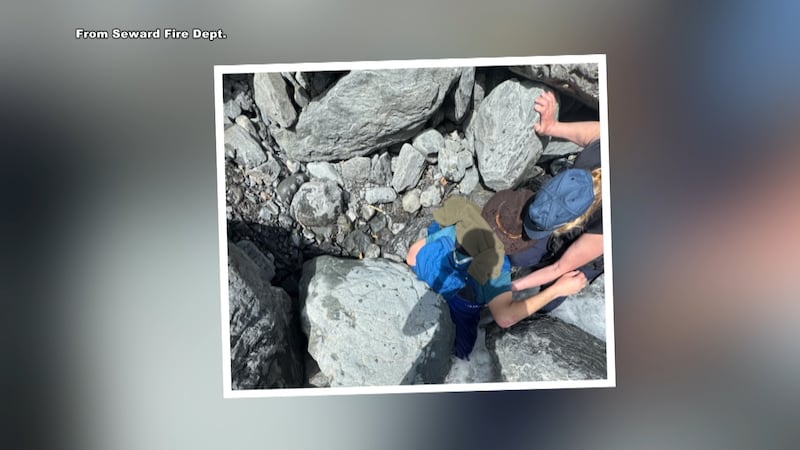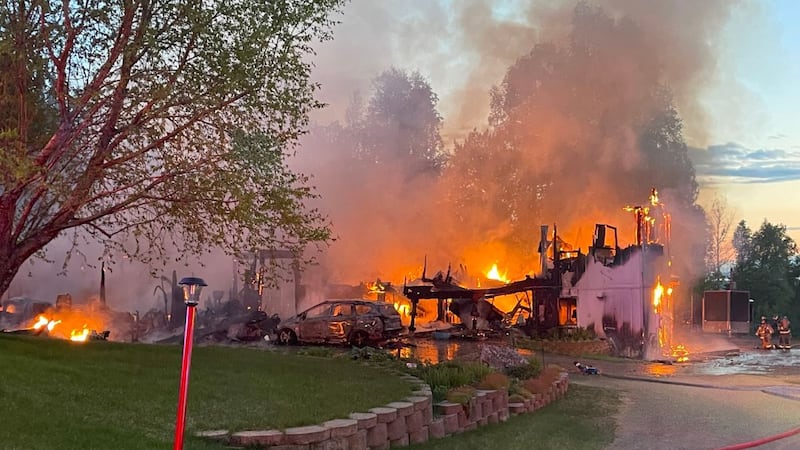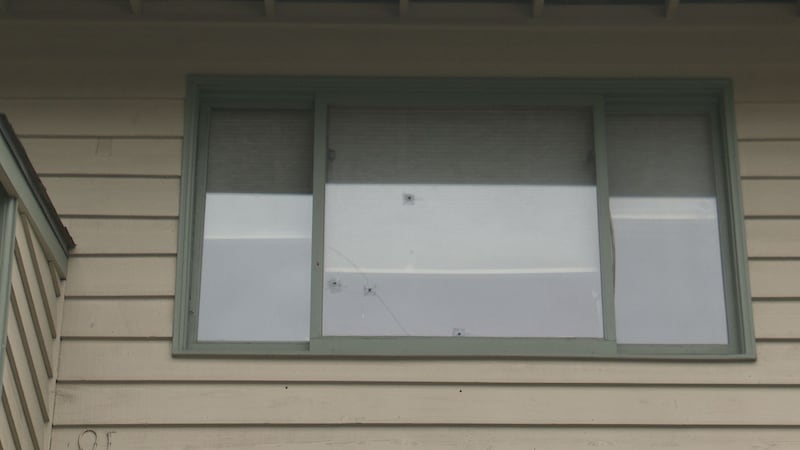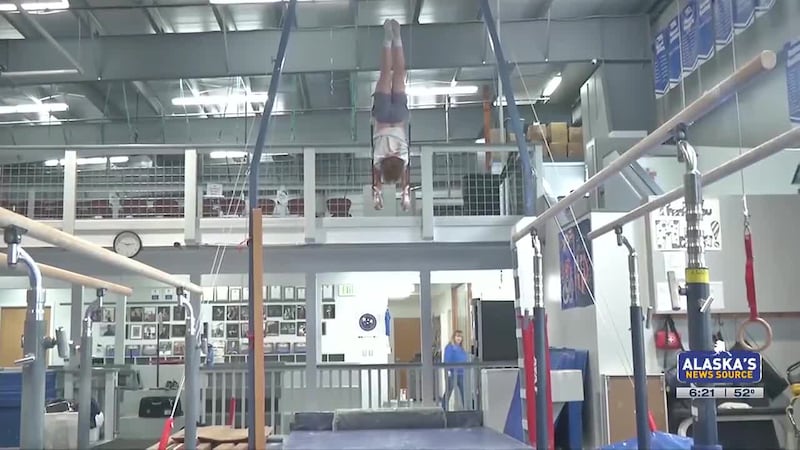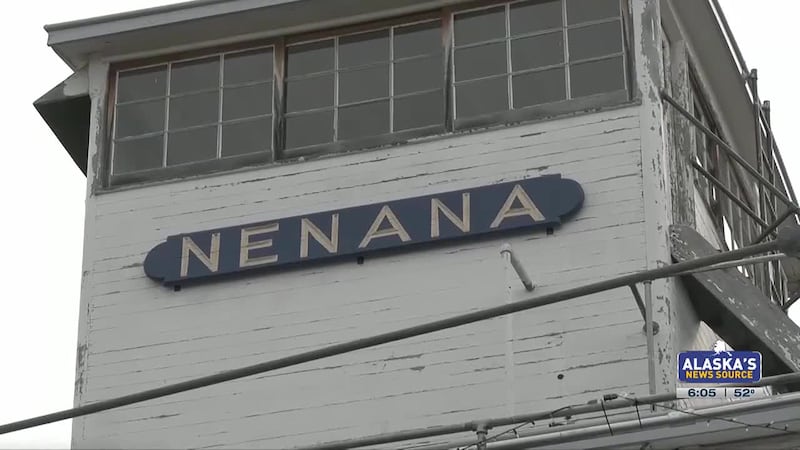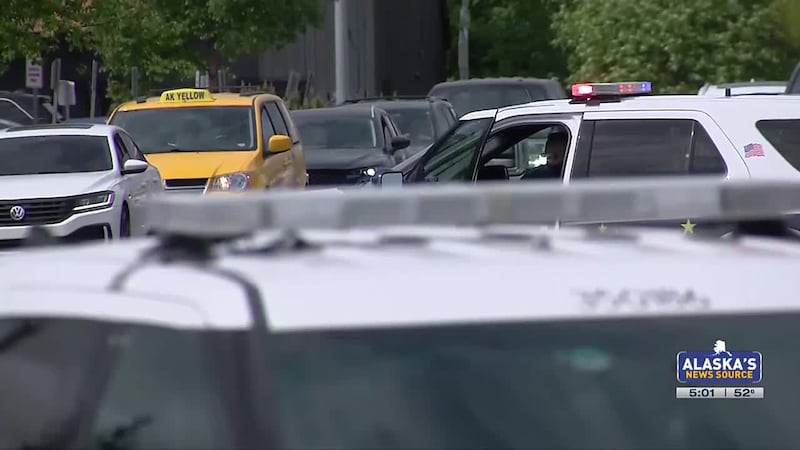House education funding bill with $700 BSA increase heads to governor’s desk
Following concurrence vote, HB 57 is now in the hands of Gov. Mike Dunleavy
JUNEAU, Alaska (KTUU) - The decision on whether or not to raise the Base Student Allocation by signing House Bill 57 into law — or to allow the legislation to become law by neither signing nor vetoing the bill — is now in the hands of Gov. Mike Dunleavy after a concurrence vote in the Alaska House of Representatives on Wednesday.
HB 57 contains a $700 BSA provision after the Senate Finance Committee added that money to the per-student funding formula last week. If the legislation becomes law, the boost in k-12 funding would mean a $6,660 BSA.
The House first received HB 57 back from the Senate after the bill passed 19-1 earlier this week, but the bill was then returned to the Senate after technical issues were identified, meaning Senate lawmakers had to vote again to get the bill back to the House.
After some debate over an amendment focused on funding reading grants — which needed altering due to an issue with some of the related technical language — the Senate moved on to a vote on the entire bill Wednesday morning.
The bill then went on to pass the Senate once again, 17-3, with Sens. Shelley Hughes, R-Palmer; Robert Myers, R-North Pole; and Mike Shower, R-Wasilla, voting against the legislation.
“I thought that, today, we were not just fixing the technical error with the ‘may’ and ‘shall,’ but that we were also removing the conditional language,” Hughes said during the floor session Wednesday, referencing the grant-centered amendment that is connected to proposed tax legislation in Senate Bill 113 and focuses on career and technical education and reading grants.
“I was disappointed when that did not occur,” she said, calling the amendment a “critical piece of the transformative policies in the bill, that will move the needle and improve student outcomes.”
“It’s an unsure thing?” she said. “I can’t support the bill without that piece. If that piece ends up – in the end – staying intact, I will go back and support the package, like I did the other day.”
Shower echoed similar sentiments in that he didn’t feel he could support the adjusted bill during Wednesday’s re-vote.
“There’s some things that broke through yesterday to today that’s kind of made me go back and forth on where I stand on this,” he told fellow lawmakers during Wednesday’s floor session. “I really do want this bill to pass, and I think it’s the deal that we can strike today with where we are, but I have some concerns.”
He thought the CTE and reading grants would stay in law, he said, and if the tax policy didn’t work out, the Legislature would figure out a way to fund the grants.
“I’m kind of anti-tax,” he said, “but I have been convinced that, if it’s going to go to education, I will soften on this one to make this happen, because this is important. And I don’t want to fail for the kids.”
What he’s been informed of since the Monday vote on HB 57, he said, is that SB 113 must be passed during this session, and if not, the funding for the amendment in question “goes away.”
“That means that the reading grants, and the CTE, that was so important to myself – and I’m going to speak to me – to get me across the line, to vote for this bill, go away," he said. “So, I’m kind of on a hope and a prayer here that those things happen, and I don’t know that they will [...] That makes it problematic for me.”
Myers had previously voted against the bill.
Sen. Loki Tobin, D-Anchorage, expressed optimism Wednesday and indicated that she believes the legislation is a good compromise for right now.
“It is not perfect,” she said. “I don’t think I’ve seen a perfect piece of policy come across my desk yet, but I’ve seen really good steps in the right direction, and that is what HB 57 is. HB 57 signifies hope, it gives hope to our teachers, it gives hope to our communities, it gives hope to the future of Alaska.”
Wednesday afternoon, the House then concurred on HB 57 in a 31-8 vote – with one lawmaker excused – which advanced the bill to the governor’s desk for consideration.
In a prepared statement, Rep. Bryce Edgmon, I-Dillingham, said the bill “represents a significant bipartisan effort to address the statewide education funding crisis.”
“Thirty-one representatives and 17 senators worked together to find a compromise that takes into consideration the fiscal realities facing the state,” he wrote, “and advances policy measures to help strengthen all of our schools going forward.”
The governor can now either sign the bill into law; leave the bill alone, and allow it to become law without his signature; or veto the bill, as he did with House Bill 69 earlier this month.
HB 57 began primarily as a bill that targeted cell phones in schools, demanding school districts implement policies in order to regulate the use of mobile devices during school hours. That policy remains intact in the version of the bill that passed both bodies.
One of the most hotly-debated provisions in both HB 57 and HB 69 has been the proposed addition to BSA, which is the annual, per-student funding amount for schools across Alaska. HB 69, originally sponsored by Rep. Rebecca Himschoot, NA-Sitka, initially had a mechanism within it to increase the BSA over the next several years based on a specific set of indicators from the few years prior.
In the end, that bill was left in a “stripped-down” form, containing only a $1,000 BSA increase, and nothing else.
As promised, Dunleavy vetoed that bill within a matter of days and then introduced his own education funding bill, which included a $560 BSA and a handful of specific clauses directing money specifically to charter schools and correspondence programs around the state.
The cost, his office said, would be equivalent to a bill with a $700 BSA increase.
Last week, Dunleavy indicated he would sign HB 57 into law, should lawmakers “make a few key edits,” which would bring the legislation closer to what he proposed in his House Bill 204.
The governor can now sign the bill into law, veto it, or do nothing, and allow the bill — after 15 days — to become law without his signature.
See a spelling or grammatical error? Report it to web@ktuu.com
Copyright 2025 KTUU. All rights reserved.




